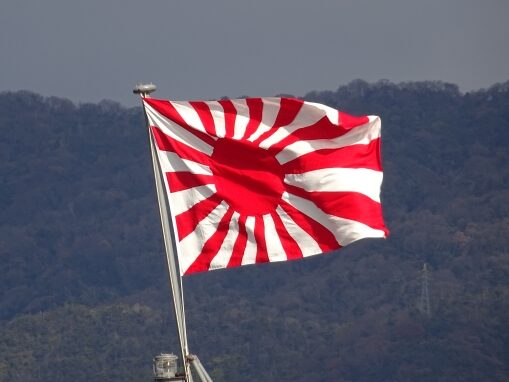Konnichiwa! Japan is one of the most culturally rich and technologically advanced countries in the world. Japan has a long and fascinating history that spans thousands of years, and it has been called the “Land of Rising Sun” for centuries. In this article, we will delve into the history of this nickname, exploring its origins, cultural significance, and modern-day usage.
Why is Japan called the Land of the Rising Sun? The phrase “Land of Rising Sun” comes from the Japanese word “Nihon,” which literally means “the sun’s origin.” This nickname has been used for centuries to describe Japan’s geographic location, as it is located to the east of many other countries, including China and Korea.
Land of the Rising Sun – History of the Nickname
The origins of Japan’s nickname can be traced back to ancient times, when the country was first mentioned in Chinese records. According to Chinese history, Japan was known as “Wa” or “Yamato,” and was believed to be a group of islands located to the east of China. The Chinese referred to Japan as the “Land of the Rising Sun” due to its location, as the sun rises in the east.
Japan’s relationship with China was complex, with the two countries engaging in trade and cultural exchange for many centuries. The Chinese influence on Japan can still be seen today in many aspects of Japanese culture, such as its writing system, religion, and philosophy.
During the medieval period, Japan began to develop its own distinct identity and culture, with the emergence of samurai warriors, the growth of Buddhism, and the rise of feudal lords. Despite this, Japan’s nickname as the “Land of the Rising Sun” remained, and was adopted by the Japanese themselves as a symbol of their national identity.

In the 19th century, Japan underwent a period of rapid modernization and westernization, opening up to the world and embracing new technologies and ideas. This period of change was known as the Meiji Restoration, and it marked a turning point in Japan’s history. As Japan began to establish itself as a major world power, its nickname as the “Land of the Rising Sun” took on new meaning, representing Japan’s rising status on the world stage.
Historical Usage
The term “Nihon” (日本), which is the native name for Japan, translates to “origin of the sun.” This linguistic connection emphasizes the significance of the sun in Japan’s cultural and historical consciousness. Over time, the symbolism of the rising sun became integral to various aspects of Japanese life, including art, literature, and religious practices.
National Flag – The Rising Sun Flag
The iconic national flag of Japan, commonly known as the “Nisshōki” (日章旗) or the Rising Sun Flag, further exemplifies the country’s connection to the rising sun. This red disc with sixteen rays extending outward has been a symbol of Japan’s identity for centuries. The Rising Sun Flag has undergone several iterations throughout history, currently featuring a red circle on a white background, but remains a powerful emblem of the country’s enduring cultural heritage.

Modern Usage and Identity
The use of the phrase “Land of the Rising Sun” continued to grow in popularity throughout the 20th century, particularly during World War II. Japan’s military expansion and conquests during this period were seen by some as a way for Japan to fulfill its destiny as the “Land of the Rising Sun,” and this belief was used to justify Japan’s aggressive actions.
Today, Japan is a peaceful and prosperous country, known for its advanced technology, rich culture, and stunning natural beauty. Despite its tumultuous history, Japan’s nickname as the “Land of the Rising Sun” remains a source of pride for its people, symbolizing their resilience, determination, and commitment to progress.

Geographic Position
Geographically, Japan is situated to the east of the Asian continent, facing the Pacific Ocean. As a result, Japan is one of the first countries to witness the sunrise each day. This geographical positioning aligns perfectly with the notion of the sun rising from the east, further strengthening the association of Japan with the rising sun.

Planning a trip to Japan?
Final Thoughts
So, why is Japan called the land of the rising sun? The answer lies in its geography, history, and cultural identity, which have all contributed to the enduring legacy of this fascinating nickname. The phrase has been used for centuries to describe Japan’s location and national identity. Its origins can be traced back to ancient Chinese history, and it has been adopted and embraced by the Japanese people as a symbol of their cultural heritage and national pride. Today, Japan’s nickname continues to be used in popular culture, literature, and media, and serves as a reminder of the country’s rich and complex history.
Disclaimer: If you use the link on this page to purchase travel insurance, we will receive a fee from Freely, a brand of Cover-More Insurance Services Pty Limited ABN 95 003 114 145 (AFSL 241713) (Cover- More). We do not act for Cover-More or Freely. The information provided is only on the availability of Freely products. We do not give advice & the information provided is not intended to give an opinion or recommendation regarding the product. For information on how to contact Cover-More or Freely refer to the PDS, FSG & TMD which can be found on the Freely website.




One thought on “Why is Japan Called the Land of the Rising Sun?”
Comments are closed.